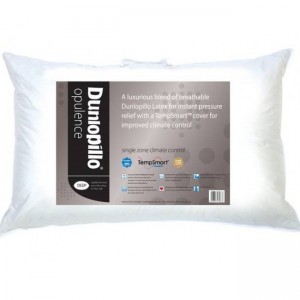Sleep is perhaps the most important of all human requirements. If you’ve had a poor night’s sleep, then you might have noticed how difficult it becomes to concentrate through the next day. If you’ve ever had to stay awake for a long time – perhaps to look after a bawling baby, or to indulge in an ill-advised nocturnal binge session of the latest Call of Duty – then you may have noticed that your memory begins to suffer. Other symptoms might include a lack of creativity and lack of judgement with an increase in stress levels.
Unfortunately, while we know enough about sleep to recognise how important it is, we don’t yet know a great deal about exactly why this is so. This is largely because of sleep’s relationship with the most complicated object in the known universe: the human brain.
To put it metaphorically: when you’ve had a good night’s sleep, your thoughts tend to be clear; when you’ve had a poor night’s sleep, they tend to be murkier. Ancient Greek philosophers like Hippocrates and Galean speculated that the role of sleep might be that of a cleanser. They imagined that, during sleep, the body washes away impurities which might have accumulated there. This theory sought to explain why our thoughts tend to be clearer if we’ve slept well: our minds have literally been washed.
Of course, our modern understanding of what thoughts are makes this notion seem almost ridiculous. We can no more ‘wash’ our thoughts – in the literal sense – than we can ‘stitch time’ or ‘make haste’. Modern science, however, has come to at least partially vindicate these ancient speculations. The brain does indeed have a self-cleaning mechanism and it does indeed occur during sleep – using a special fluid known as cerebral-spinal fluid, which flows along the blood vessels in our brain during sleep.
That said, our understanding of sleep is still shallow and there is much that experts disagree upon. Some believe that sleep helps us to recuperate, others argue that it is more to do with developing the brain. The weight of scientific opinion has, in the last decade, come to emphasise the importance of sleep in achieving mental health and productivity.
If some scientists are to be believed, we live in an age of unprecedented sleep deprivation. We’re all familiar with the longstanding recommendation that we get at least eight hours of sleep a night. In teenagers, whose brains are still developing, this recommendation grows higher still, to nine hours a night. Few of us meet this recommendation. Some of us, in fact, get closer to five hours a night. Shift workers feel the pain more than most – as do those who have to do a lot of flying and so contend with the problem of jet lag.
You don’t need to be an expert in circadian neuroscience to appreciate the extent to which sleep (or a lack of it) affects us in our daily lives. As well as its immediate effects, sleep-deprivation has knock-on consequences, too; a tired brain is also one which craves things which might help compensate for the shortfall of energy– nicotine, caffeine or sugar – none of which, to put it mildly, are good for us in the long-term. This problem becomes even worse when we have to sedate ourselves back to sleep using alcohol.
The more we learn about sleep, the more important it seems to become. Any tool which can help us to get a better night’s sleep is therefore one which we should reach for. And the most obvious difference-maker between good sleep and bad sleep is the bedding on which the sleeping is actually done.
Is bedding important?
The quality of our sleep hinges, to a large extent, upon the quality of our bedding. Anyone who’s spent any time on the road will be aware of the enormous variety in the quality of bedding. But even if you haven’t done much travelling, the chances are that you’ve at some point slept on a bed which wasn’t up to scratch. Perhaps the springs are on the way out and piercing through the top or the sheets are overly bobbly or itchy. You might, on the other hand one day have the pleasure of sleeping on a bed which is of a markedly higher quality to the one you have at home. Perhaps the sheets were crisper, the mattress comfier and the pillows more voluptuous.
Either instance might have gotten you wondering what it is that makes the difference. Exactly what separates quality bedding from its imitators? To understand this, we must examine some of the attributes possessed by one but lacking in the other, in order to judge whether the extra expenditure is worthwhile. There are myriad factors which contribute to the overall quality of a bed (and that of the sleep one can get in it). Let’s examine them in turn.
Thread count
The ‘thread count’ of a sheet (or indeed, any fabric) is a basic measure of the fineness of its stitching. It comes in threads per square inch. A coarser fabric might come in at around a hundred, while a smoother one might come in at four, five or even six hundred – or even a thousand.
Sheets with lower thread counts will feel coarser. Sheets with higher thread counts, by contrast, feel smoother and more ‘luxurious’. Having said that, this is just a general rule – there are a number of factors which can influence the tactility of a sheet and there are some high-quality sheets with low thread counts which can feel much smoother than other sheets with much higher thread counts. The best way to be sure is to sample the material before buying.
Of course, higher thread counts require a great deal more time and technical expertise. Finer margins typically mean more frequent manufacturing errors and therefore greater costs. But a higher thread count also requires that the material used be finer, so that all these threads can be packed so tightly together.
Material
In order to save money, cotton is sometimes woven with polyester – with agreeable results. But when it comes to quality, there is no substitute for a sheet made from 100% cotton. Not only will the feel of the material be appreciably softer, but the material will be stronger, thus allowing finer threads to be woven more tightly without compromising strength.
Of course, since cotton is a farmed crop, its qualities vary according to the conditions in which it was grown. As a general rule, cotton which is allowed to grow longer produces a higher quality yield and therefore a higher quality of bedding. This quality is dependent on things like the condition of the soil, the amount of sunlight and moisture and the techniques used to grow and harvest the cotton.
While Egyptian cotton has, over a very long period of time, acquired a reputation as the pinnacle of luxury, this position has never been under greater threat. Chinese, Indian and American cotton producers, for example, all create cotton of the highest quality.
Pillows
Perhaps the most important feature of a night’s sleep is the pillow. After all, if you’ve ever found yourself wanting to catch up on a little sleep – perhaps while waiting in an airport, or in the middle of a long train journey – then you’re far more likely to roll up a jumper and stuff it underneath your head than you are to drape it over yourself and allow your head to go unsupported. If you find yourself frequently suffering from a stiff neck, then a poor pillow could be to blame.
The best quality pillows are, generally speaking, those which are stuffed with feathers – and for this reason cheaper substitutes try to emulate this by creating lots of smaller faux-feathers from synthetic material. These fake feathers are known as hollow fibres.
As one might expect, natural feathers come in a number of different sorts. As with cotton, there is some variation between the different feathers and these variations stem from the origin of the bird. Duck feathers are soft, while goose feathers are softer still. Moreover, some geese yield better quality feathers than others, for example, Hungarian geese enjoy a reputation as having the softest down feathers of all and so they often find their way into the softest, and most luxurious, feather pillows.
Feather pillows have a limited lifespan, as over the years, the feathers begin to degrade and become compressed together. It is important, therefore, to perform regular maintenance in order to ensure that this doesn’t happen. This maintenance consists of regular plumping, perhaps done daily, just after you’ve woken up. This will ensure that the feathers are nice and light and that the pillow supports the weary head of the bed’s occupant.
Memory foam is another rival technology which, over time, deforms perfectly to the shape of your head. It is completely unlike a feather pillow and so comparisons between the two are ill-advised. Like most of the considerations in this article, the best way to make a judgement is to go to a shop and test the various options for yourself!






